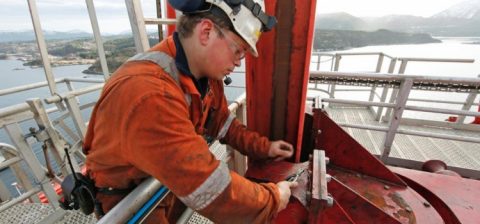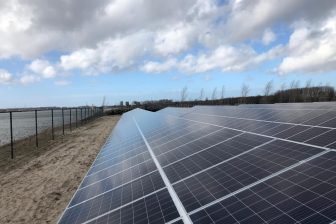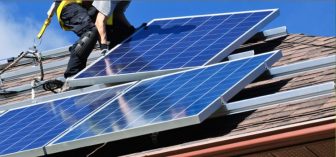
Europa berispt Nederland om veiligheidsregels olieplatforms
1 maart 2016 – De Europese Commissie heeft Nederland een berisping gegeven, omdat de Europese veiligheidsregels voor olie- en gaswinning nog niet zijn doorgevoerd in de nationale wetgeving. Nederland krijgt nog twee maanden om dat alsnog te doen.
Om rampen zoals met de Deep Water Horizon in de Golf van Mexico te voorkomen, maar ook om snel en effectief te kunnen reageren als er iets mis gaat op een olie- of gasplatform in Europese wateren, heeft de Europese Commissie (EC) een richtlijn opgesteld. Alle Europese lidstaten hadden de veiligheidsregels vóór juli 2015 moeten integreren in de nationale wetgeving. Nederland heeft dat tot op heden nog niet gedaan, en is daarvoor berispt door de EC.
Uit een bericht van Europa.nu
‘(…) De Europese Commissie gaf Nederland donderdag nog twee maanden de tijd om het in orde te maken, anders volgt mogelijk een stap naar het Europees Hof van Justitie. (…)
Griekenland en Portugal kregen donderdag een soortgelijke waarschuwing. Vorig jaar werden al vijftien andere EU-lidstaten berispt. (…)’
In de EU-richtlijn zijn de oliebedrijven volledig aansprakelijk voor eventuele milieuschade door ongelukken. De afzonderlijke landen moeten erop toezien dat de bedrijven voldoende maatregelen nemen om ongelukken te voorkomen en dat ze genoeg technische kennis en financieële middelen hebben om goed te reageren op een incident.
De richtlijn in het kort, op de website van de Europese Commissie
‘(…) Under the Safety of Offshore Oil and Gas Operations Directive, the EU has put in place a set of rules to help prevent accidents, as well as respond promptly and efficiency should one occur:
- before exploration or production begins, companies must prepare a Major Hazard Report for their offshore installation. This report must contain a risk assessment and an emergency response plan
- companies must keep resources at hand in order to put them into operation when necessary
- when granting licenses, EU countries must ensure that companies are well financed and have the necessary technical expertise
- technical solutions which are critical for the safety of operators’ installations must be independently verified. This must be done prior to the installation going into operation
- national authorities must verify safety provisions, environmental protection measures, and the emergency preparedness of rigs and platforms. If companies do not respect the minimum standards, EU countries can impose sanctions, including halting production
- information on how companies and EU countries keep installations safe must be made available for citizens
- companies will be fully liable for environmental damages caused to protected marine species and natural habitats. For damage to marine habitats, the geographical zone will cover all EU marine waters including exclusive economic zones and continental shelves. (…)’
Bronnen
Europa.nu, 25 februari 2016: Nederland berispt om veiligheid olieplatforms
Richtlijn Europese Commissie over veiligheid van offshore olie- en gaswinning
Europese Commissie, zonder datum: Offshore oil and gas safety
Foto: Boorschip West Navigator boort op duizend meter diepte in het Ormen Langeveld, voor de kust van Noorwegen. (Shell)



